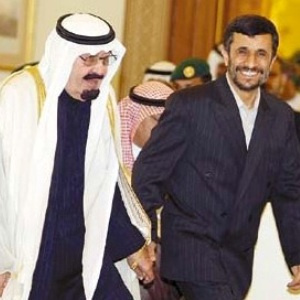Tehran and Riyadh Step Up Diplomatic Interaction as US Prepares to Withdraw

On the first day of 2011 the Lebanese daily Al-Safir reported an imminent visit to Iran by ailing Saudi King Abdullah to Iran. No official sources have so far confirmed the news. A visit by King Abdullah to Iran is of course unlikely. After his multiple surgeries in New York, his state of health is not yet clear. It is not even clear when he will return to Saudi Arabia. Meanwhile, heir to throne Sultan bin Abdul-Aziz is also in bad health, and has been residing in Morocco for months. The decision-making mechanism has turned out to be quite byzantine in the Saudi royal family, and it is not clear if there is one powerful dominant prince, such as Saud al-Faisal or Prince Nayef, or a congregation of princes who make final decisions. As long as the situation is this vague, no visit to Tehran by the Saudi king will be on the schedule.
However, it is clear that considering the region’s critical situation, Iran and Saudi Arabia need to mend ties. The latest visit to Saudi Arabia was made by Mohamamd-Reza Sheibani, Deputy Foreign Minister for Foreign Affairs, who reportedly was given a warm reception by his Saudi host.
Saudi Arabia and Iran have moved on divergent paths during recent years, especially on thorny regional issues such as Iraq’s new order, the Israeli-Palestinian conflict, and political state in Lebanon. Riyadh, for example, accused Hezbollah of adventurism in the early days of its battle with Israel in the summer of 2006, however, neither Iran nor Hezbollah pushed their criticism of the Saudis too far and tried to keep it at an optimal level. It has proved to be a logical choice. The US has announced its plans for a step-by-step withdrawal from Afghanistan and Iraq, and regional actors need to control the situation. I have deliberately used the word ‘control’, since in the current circumstances there is no room to talk about resolving the conflicts.

